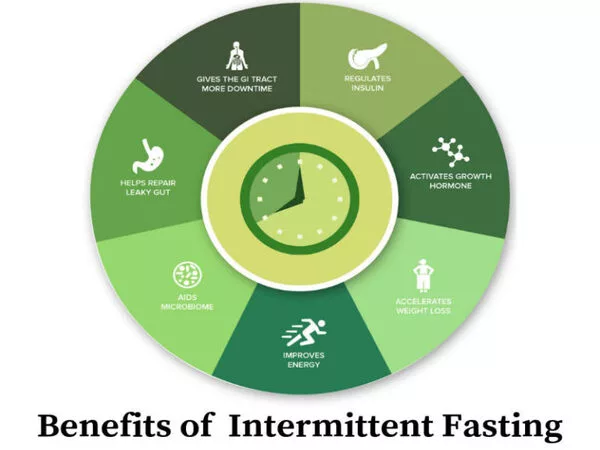According to new research, intermittent fasting may be a viable therapy strategy for Alzheimer’s disease. Mice fed on a time-restricted regimen exhibited greater memory and less amyloid protein buildup in the brain than controls.
The interruption of the body’s circadian rhythm, the internal biological clock that regulates many of our physiological functions, is one of the hallmarks of Alzheimer’s disease. Almost 80% of persons with Alzheimer’s suffer these symptoms, which include difficulties sleeping and decreasing cognitive function at night. There are currently no Alzheimer’s medications that target this element of the illness.
A new study from the University of California San Diego School of Medicine found that time-restricted feeding, a type of intermittent fasting that focuses on limiting the daily eating window without limiting the amount of food consumed, can correct the circadian disruptions seen in Alzheimer’s disease in mice.
Circadian disruptions in Alzheimer’s are the leading cause of nursing home placement. Anything we can do to help patients restore their circadian rhythm will make a huge difference in how we manage Alzheimer’s in the clinic and how caregivers help patients manage the disease at home.
Paula Desplats
The study, published in Cell Metabolism, found that mice fed on a time-restricted schedule had better memory and less amyloid protein formation in the brain. According to the scientists, the findings will almost certainly culminate in a human clinical trial.
“For many years, we assumed that the circadian disruptions seen in people with Alzheimer’s were the result of neurodegeneration, but we’re now learning that it may be the other way around – circadian disruption may be one of the main drivers of Alzheimer’s pathology,” said senior study author Paula Desplats, PhD, professor in the Department of Neurosciences at the University of California, San Diego. “This makes circadian disruptions a promising target for new Alzheimer’s treatments, and our findings provide the proof-of-concept for an easy and accessible way to correct these disruptions.”
Alzheimer’s disease affects more than 6 million Americans, and it is considered by many to be the biggest forthcoming health challenge in the United States. People with Alzheimer’s experience a variety of disruptions to their circadian rhythms, including changes to their sleep/wake cycle, increased cognitive impairment and confusion in the evenings, and difficulty falling and staying asleep.

“Circadian disruptions in Alzheimer’s are the leading cause of nursing home placement,” Desplats stated. “Anything we can do to help patients restore their circadian rhythm will make a huge difference in how we manage Alzheimer’s in the clinic and how caregivers help patients manage the disease at home.”
Controlling the daily cycle of feeding and fasting is one strategy to boost the circadian clock, which is an emerging technique to enhancing health outcomes. The researchers tested this method in an Alzheimer’s disease animal model, feeding the mice on a time-restricted schedule where they could only eat within a six-hour window each day. This equates to approximately 14 hours of fasting every day for people.
Compared to control mice who were fed at all hours, mice fed on a time-restricted schedule exhibited greater memory, were less hyperactive at night, had a more regular sleep pattern, and suffered fewer interruptions during sleep. The test mice also scored better on cognitive exams than the control mice, showing that the time-restricted feeding regimen could help attenuate the behavioral symptoms of Alzheimer’s disease.
The researchers also noticed molecular changes in the animals. The researchers discovered that many genes related with Alzheimer’s and neuroinflammation were expressed differently in mice fed on a rigorous schedule. They also discovered that the feeding schedule helped minimize the quantity of amyloid protein that collected in the brain. Amyloid deposits are one of the most well-known features of Alzheimer’s disease.
Because the time-restricted feeding schedule was able to significantly alter the course of Alzheimer’s disease in mice, the researchers are hopeful that the findings will be easily translatable to the clinic, especially since the new treatment approach relies on a lifestyle change rather than a drug.
“Time-restricted feeding is a strategy that people can easily and immediately integrate into their lives,” Desplats stated. “If we can reproduce our results in humans, this approach could be a simple way to dramatically improve the lives of people living with Alzheimer’s and those who care for them.”
















